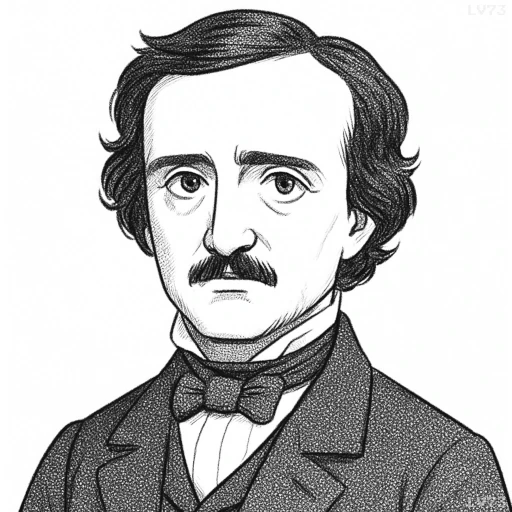“It will be found, in fact, that the ingenious are always fanciful, and the truly imaginative never otherwise than analytic.”

- January 19, 1809 – October 7, 1849
- American
- Novelist, poet, critic
table of contents
Quote
“It will be found, in fact, that the ingenious are always fanciful, and the truly imaginative never otherwise than analytic.”
Explanation
In this quote, Edgar Allan Poe distinguishes between two types of creative minds: the ingenious and the truly imaginative. According to Poe, those who are ingenious often rely on fanciful ideas—creative thoughts that may appear novel or inventive but are not grounded in deep analysis or systematic reasoning. On the other hand, Poe argues that the truly imaginative mind is always analytic—it does not simply dream up ideas out of thin air but instead takes a more methodical approach, observing, analyzing, and synthesizing reality in new and unique ways. For Poe, imagination is not merely about fantasy but involves critical thinking that transforms ordinary ideas into something extraordinary.
Poe was highly influenced by the Romantic Movement, which emphasized individual creativity and the pursuit of originality. His works often blurred the lines between reason and imagination, exploring how both qualities could work together to create profound art. In his view, the true artist or creative mind does not simply rely on whimsy or superficial inspiration, but on a deeper, more structured form of creativity that involves careful observation and introspection. This blend of analytic thinking and imagination is what gives art its depth and power.
In modern times, this quote can be understood as a critique of the popular conception of creativity—the idea that creativity is purely spontaneous or whimsical. Today, we often celebrate innovation and ingenuity, but Poe’s view suggests that true creativity involves not just coming up with new ideas, but doing so in a way that is informed by critical analysis and a deep understanding of the subject matter. Whether in art, science, or technology, the most groundbreaking ideas often come from those who combine imagination with a rigorous, analytic approach—taking the time to study, reflect, and make sense of the world before they transform it.
Would you like to share your impressions or related stories about this quote in the comments section?


